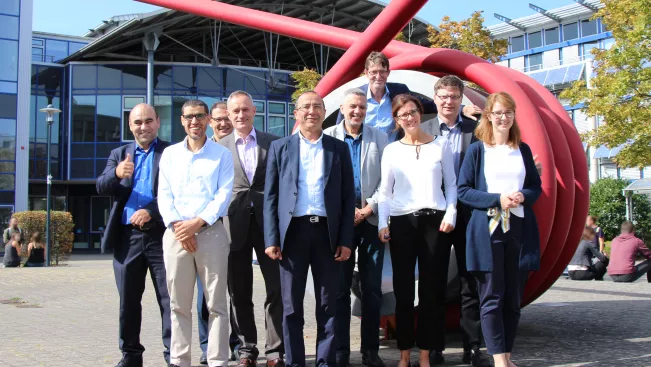Department of Computer Science
Open2-consortium meets in Sankt Augustin

v.l. Prof. Dr. Karim Baina (Dekan ENSIAS), Prof. Dr. Khalid Elbaamrani (ENSA), Hassan Bouhaddou (CNRST), Horst Hermann (Professional Start), Prof. Dr. Ismail Kassou (vice president ENSIAS), Redouane Merrouch (CNRST), Dr. Udo Scheuer (H-BRS), Sabine Schüler (H-BRS), Prof. Dr. Rainer Herpers (H-BRS), Dr. Barbara Hillen (H-BRS)
The wide range of topics provided the participants with helpful ideas. Horst Hermann from Professional Start explained the "Basics in Entrepreneurship"; Dr. Udo Scheuer, head of the Center for Science and Technology Transfer (ZWT), introduced the ZWT and explained "Promoting Research - Framework for successful TTOs". Prof. Dr. Marco Winzker rounded off the first day of the meeting with a presentation of his "Remote Lab Digital Technology", which was received with great interest among the Moroccan guests.
The focus of the second day was a "Design Thinking" workshop - this innovation method is essentially based on placing the user / customer at the center of action. Innovation processes can be structured using the Design Thinking method and even behavior patterns in companies and universities can be questioned.
The DigitalHUB at the Bonner Bogen demonstrated to the consortium partners how graduates with an idea can become entrepreneurs. The HUB promotes the development of innovative digital businesses and products in partnership with ambitious start-ups and established commercial enterprises.